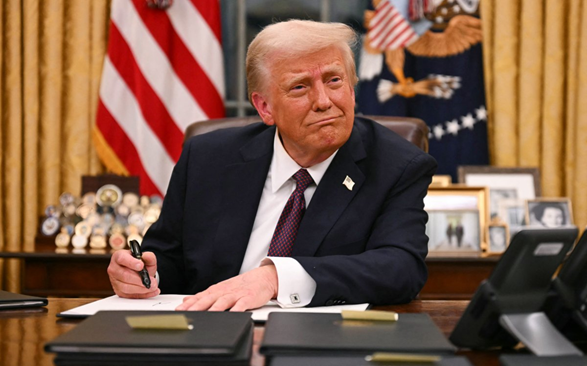The Bank of Ghana has taken a significant step towards regulating the virtual asset industry in the country by requiring all Virtual Asset Service Providers (VASPs) operating in Ghana to register with the central bank. This move aims to maintain financial stability, promote innovation, and protect consumers in the digital financial ecosystem.
As stated in the public notice by the Bank of Ghana dated 10 July 2025, the registration process is part of a preliminary regulatory framework to identify and assess entities engaging in virtual asset activities, including:
- Virtual Asset Exchange Services: platforms that enable the exchange of virtual assets for fiat currencies or other digital assets.
- Wallet Provision or Custody Services: services that provide secure storage and management of virtual assets.
- Transfer or Settlement Services: services that facilitate the transfer or settlement of virtual assets.
- Services Related to the Issuance or Sale of Virtual Assets: services related to initial coin offerings (ICOs) and stablecoins.
All VASPs currently offering services to persons resident in Ghana, whether through physical presence or digital platforms, are required to complete the registration process. The list of VASPs captured on the application form are as follows:
- Exchange/Trading platform
- Payments (Domestic and Cross-border)
- Custodial Wallet Provider
- Non-Custodial Wallet Provider
- Virtual Asset Issuer
- Tokenization
- Broker
- P2P Merchant
- Investment Advisor
- Escrow Service Provider
- VA Advocate (educator/promoter/liaison)
- Miner/Validator
- Other
Registration must be completed via this link by 15 August 2025. For enquiries or technical support related to the registration process, VASPs can contact vasp@bog.gov.gh, states the Bank of Ghana.
Read also: Cryptocurrency Adoption in Africa: The Ups and Downs
After registration, what regulatory approach is Ghana likely to adopt?
The Bank of Ghana’s draft guidelines published in 2024 outline a framework for the country’s digital asset sector. Apparent from this draft provisions is that Bank of Ghana and SEC will develop distinct regulatory frameworks for different digital asset applications, ensuring a coordinated approach to regulation.
The key provisions of the draft guidelines include the following:
- Both the Bank of Ghana and Securities and Exchange Commission (SEC) will regulate the sector: VASPs must register with the Bank of Ghana or the SEC, depending on their specific products and services.
- Risk Management Frameworks: VASPs are required to demonstrate satisfactory internal controls and risk management frameworks to mitigate potential risks.
- Capital Requirements: VASPs must meet specific capital requirements to ensure financial stability and protect consumers.
- Anti-Money Laundering (AML) and Counter-Terrorism Financing (CFT): Registered VASPs must comply with AML and CFT regulations, including the Financial Action Task Force (FATF)’s Travel Rule, to prevent financial crimes.
- Sandbox Testing Process: The Bank of Ghana plans to conduct a sandbox testing process with selected VASPs to refine the regulations before broader implementation.
- Oversight of Cryptocurrency Exchanges: Cryptocurrency exchanges will be required to monitor transactions for suspicious activities and report them accordingly, aligning with international standards.
- Banking Services for VASPs: Commercial banks may offer services to registered VASPs, subject to conditions similar to those for Enhanced Payment Service Providers (EPSPs).
After reviewing applications, the Bank of Ghana will likely implement these provisions to ensure a secure and conducive environment for the growth of digital assets in Ghana.
The Journey So Far and Industry Reactions to the Call for Registration
Ghana’s journey towards regulating virtual assets began with a cautionary notice from the Bank of Ghana in 2018. In a notice to banks and specialized deposit-taking institutions (SDIs) and the general public, the Bank of Ghana stated that “the activities in digital currency are currently not licensed under the Payments System Act 2003 (Act 662)” [1]. The central bank acknowledged the potential of blockchain technology but expressed concerns about the risks associated with digital currencies. The notice emphasized the importance of doing business with licensed institutions and encouraged the public to consult the Bank of Ghana’s website for a list of licensed banks and non-bank financial institutions.
Since then, the Bank of Ghana has taken steps to develop a regulatory framework for virtual assets. In August 2024, the central bank released draft guidelines on digital assets, detailing proposed regulatory measures. The Bank of Ghana sought feedback from industry stakeholders and the public, marking a significant shift in the country’s stance on cryptocurrencies.
Read also: Crypto, Web3 adoption and ownership in Africa: Nigeria, South Africa leading
As the Bank of Ghana moves to regulate the virtual asset industry, many VASPs may be thinking about what the impact could be on their operations. Given the historical skepticism towards virtual assets, it’s natural for businesses to wonder what the future holds. While Ghana may in fact be coming late to the party, industry advocates believe the Bank of Ghana’s registration requirement for VASPs is a positive step.
Speaking with CAB, Lucky Uwakwe, the Chairman of the Blockchain Industry Coordinating Committee of Nigeria (BICCoN), expressed support for the initiative. According to Mr Uwakwe, “the registration is a step in the right direction, as it is an early step towards regulatory development.”
“This development will also help Ghana avoid scenarios like FTX, where citizens face challenges in receiving compensation due to a lack of regulatory frameworks in their country. It’s a positive step for any government to take an active role in identifying and overseeing crypto exchanges and platforms that serve their market. By doing so, the government can protect its citizens while fostering innovation in the sector and building confidence among local players”, said Mr Uwakwe.
Beveley Agbakoba-Onyejianya, Vice Chair (Corporate Governance) of the Virtual Asset Service Providers Association (VASPA) commended the Bank of Ghana for taking this step to regulating the virtual asset industry. In her words to CAB, “I believe this development is a positive step towards establishing clear guidelines and standards for the Ghana virtual assets industry. At the end of the process, one expects the establishment of a regulatory framework that will enable VASPs to operate with greater clarity and confidence while also protecting consumers and maintaining financial stability.”
Adedeji Owonibi, non-executive Chair of VASPA, also remarked: “The registration, as I understand it, means that the Bank of Ghana wants to know the players in the sector for the purpose of developing an efficient and effective regulatory framework that balances innovation with risk management, as much as practicable. This is a good start.” Mr Owonibi also pointed out that by working together alongside VASPs, “African countries can create robust and well-regulated virtual asset industries that benefit businesses, consumers, and governments across Africa.” However, Mr Owonibi added that enforcement must be best in class because without it the whole exercise will be a disincentive to compliant VASPs, if rogue operators continue their businesses regardless, particularly platforms that may take undue advantage of their remote presence to prioritize profit, since they typically have no local staff or link that could be brought under any enforcement by Ghanaian authorities.
Ophi Rume, Founder of Cryptopreacher Academy and a leading Crypto Analyst, welcomes the initiative, congratulating Ghana for what he described as the right step in the right direction. In his chat with a CAB reporter, Mr Ophi remarked: “Indeed Africa is ready for the virtual asset economy. Although Ghana is yet to advance regulations to the level a country like Nigeria has done, it is noteworthy that the Bank of Ghana has taken an initial and much simpler step forward by inviting VASPs to come forward to introduce their platforms. I believe that after registration is completed, a licensing process will follow.” According to Mr Ophi, what stood out significantly for him, especially compared to Nigeria’s approach, is that Ghana’s central bank itself wants to have a direct engagement with VASPS, not the indirect one the Central Bank of Nigeria (CBN) currently has with VASPS, where, for example, VASPs guidelines are communicated to existing traditional financial institutions and Fintech companies, without any regulatory system in place for a direct CBN-VASPs relationship.
Read also: Informally Stubborn- Africa’s Blockchain Yearning for a Better Formal Structure
Discover more from Crypto Asset Buyer
Subscribe to get the latest posts sent to your email.





